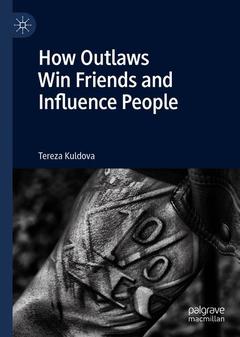Description
How Outlaws Win Friends and Influence People, 1st ed. 2019
Author: Kuldova Tereza
Language: English
Subjects for How Outlaws Win Friends and Influence People:
Approximative price 94.94 €
In Print (Delivery period: 15 days).
Add to cart214 p. · 14.8x21 cm · Hardback
Description
/li>Contents
/li>Biography
/li>Comment
/li>
?Tereza Kuldova is a rebel with a cause - her new book is a razor-sharp critique of stereotypical conceptions of the ?outlaw biker? and provides refreshing insights into their subjective life-worlds?? - Daniel Briggs, author of the award-winning Dead-End Lives.
Acknowledgements
Prologue
Chapter One: Outlaws and Supporters
Chapter Two: Sublime and Power
Chapter Three: Sovereignty and the Political
Chapter Four: Sacred and Symbolic Immortality
Chapter Five: Solidarity and Sacrifice
Epilogue
Index
Tereza Kuldova is a social anthropologist and Researcher at the Department of Archaeology, Conservation and History, University of Oslo, Norway. She is the author of Luxury Indian Fashion: A Social Critique (2016), editor of Outlaw Motorcycle Clubs and Street Gangs: Scheming Legality, Resisting Criminalization (2018), and editor-in-chief of the Journal of Extreme Anthropology.
Asks why people join outlaw motorcycle clubs
Theorizes these gangs as transnational social phenomena, existing within a changing cultural, political and socio-economic context
Draws on an ethnographic study primarily in Europe and California
Sits at the boundary between social anthropology, criminology and critical studies




